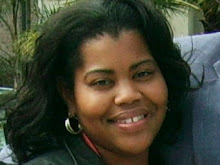
Ahhh, social conflict theory. Typically, the second sociological perspective discussed in an Introductory Sociology course. Functionalism, which sees society operating as a system of interrelated parts for the functioning of the whole--much like a human body--Social Conflict then is like its antithesis and represents the power struggle between groups in society. Karl Marx often takes the credit for this theory because of his pioneering writings on the inherent differences in class systems associated with capitalism. This approach has spawned many theories, the most popular perhaps--Feminist Theory and Racial-conflict theory. In class, it's hard for me to explain there are INHERENT differences between groups. I believe that most people and groups of people want the same. The methods and techniques they choose to achieve these things happen to vary, and the gray matter in between makes social conflict theory less concrete in times of social stability or perceived stability. But as there is a cause and effect for all phenonema, then maybe there can be inherent differeces between groups.
Let's look at the class system in the U.S.: As Americans, we live and die for the American dream (spouse, house, car, 2.5 kids, and a dog). More recently it includes upgrades like a 3,000sqft. house, and a Hummer--essentially equating to more living space to accomodate less family. We may work like hell, skipping family vacations and recitals in order to achieve this dream, yet rarely take the time to realize that our hard work most likely will not make us financially richer, rather we work for the profit-making of company owners. But if we can get the shared symbol of power and success (the spouse, house, car, kids, and dog), then working like hell is the sacrifice. If the working class felt exploited, maybe they would revolt as Marx suggested they should. This inherent difference between the working class and the company owners has become blurred since Marx's day, from opportunities to middle management advancement in corporate America to the representation of the middle class in the U.S.
In this time of social instability, the line between the haves and the have-nots is becoming clearer. Social conflict argues that change is beneficial for society and perceives of how conflict can even settle complex issues. Needless to say "change" has become a buzzword in the current political climate. It will be interesting to see how sociological theory will change upon the settling of differences between so-called inherently conflicting groups.

No comments:
Post a Comment